The State Bank has announced and completed the mandatory transfer of GPbank to VPbank, Dong A Bank to HDbank , OceanBank to MB and CBbank to Vietcombank. The transfer is expected to help these four banks overcome accumulated losses and exit special control.
Meanwhile, the transferee banks will enjoy many preferential mechanisms on capital sources and credit room to expand the scale of assets and outstanding debt, so that banks can participate in successfully restructuring weak credit institutions.
At the workshop “Bank restructuring, how to achieve maximum efficiency?” held on April 11 in Ho Chi Minh City, many opinions about the existence of weak banks were dissected by banking and finance experts.

Workshop “Bank restructuring, how to achieve maximum efficiency?” organized by Tien Phong Newspaper in Ho Chi Minh City on April 11. (Photo: Dai Viet)
Mr. Nguyen Xuan Thanh, Lecturer in Public Policy at Fulbright University Vietnam, said that Vietnam has done something that few countries have been able to do, which is restructuring banks “without spending money”. However, this is not without cost.
In fact, the solution that Vietnam is working on is to help the transferee banks grow rapidly. Specifically, the transferee banks will take profits from rapid growth in the future to compensate for past losses.
“Weak banks will remain the same, and the banks that receive the transfer will grow rapidly to compensate. In fact, no one wants to receive weak banks. However, the State will create preferential mechanisms for the banks that receive the transfer,” Mr. Thanh said.
Lawyer Truong Thanh Duc, Arbitrator of the Vietnam International Arbitration Center, shared that currently, competition in the banking and finance market is extremely fierce. A not-so-strong bank taking on another weak bank for restructuring is a very difficult task.
According to Mr. Duc, it is necessary to clarify how many joint stock commercial banks Vietnam needs. Currently, Vietnam has 35 banks in operation. However, weak banks need to be reviewed, because the policy is not to need too many banks.

Lawyer Truong Thanh Duc: Compulsory transfer of weak banks is currently a temporary solution. (Photo: Dai Viet)
“The compulsory transfer of weak banks is currently a temporary solution. Firefighting requires a long-term vision. The transfer must ensure legal regulations and economic stability to effectively and safely resolve the issue of the financial and monetary system,” said Mr. Duc.
Dr. Nguyen Tri Hieu, Director of the Institute for Research and Development of Global Financial and Real Estate Markets, said that there should be a mechanism for banks to voluntarily transfer. Weak banks must find their own “parent” banks to carry out restructuring.
In fact, weak banks were bought for 0 VND but could not be revived, the more they worked, the more they lost. Vietnam is operating in a market economy, let the market decide the fate of inefficient banks.
According to Associate Professor Dr. Nguyen Duc Trung, Principal of Banking University of Ho Chi Minh City, the term “zero-dong bank” is being abused. In fact, legal documents do not mention the above concept.
The zero-dollar story is that banks were restructured for 2 years but were not strong enough to recover and had to be dealt with. American and Chinese banks also did similar things. The basic purpose is to ensure the rights of depositors, and have someone take responsibility if depositors want to withdraw their money. Restructuring cannot help weak banks become stronger immediately, but takes decades.
“A person with dengue fever cannot stand up and run 25km right away, it takes them many years to be able to run like that. Weak banks cannot recover immediately, they need time. I think successful restructuring is to protect depositors, there is no conflict with depositors,” said Mr. Trung.
Source: https://vtcnews.vn/chuyen-gia-viet-nam-da-tai-cau-truc-ngan-hang-nhung-khong-ton-tien-ar937134.html


![[Photo] Party and State leaders attend the special art program "You are Ho Chi Minh"](https://vphoto.vietnam.vn/thumb/1200x675/vietnam/resource/IMAGE/2025/5/18/6895913f94fd4c51aa4564ab14c3f250)

![[Photo] Ready for the top competitions of Vietnamese table tennis](https://vphoto.vietnam.vn/thumb/1200x675/vietnam/resource/IMAGE/2025/5/18/9c547c497c5a4ade8f98c8e7d44f5a41)
![[Photo] Many young people patiently lined up under the hot sun to receive a special supplement from Nhan Dan Newspaper.](https://vphoto.vietnam.vn/thumb/1200x675/vietnam/resource/IMAGE/2025/5/18/6f19d322f9364f0ebb6fbfe9377842d3)


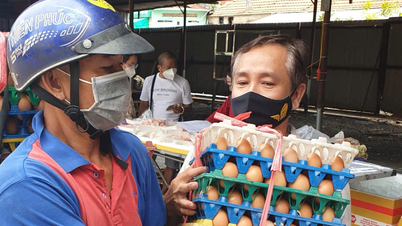



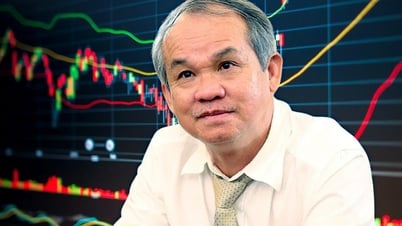
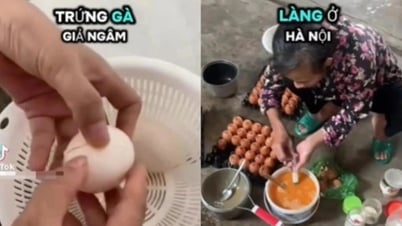

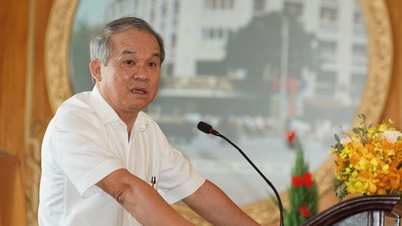


























































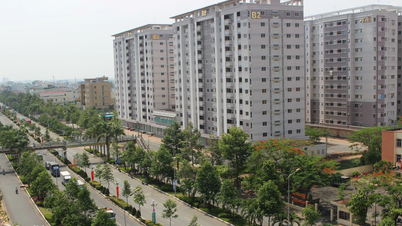


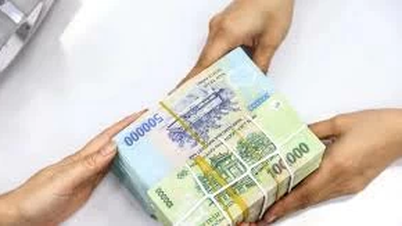












Comment (0)